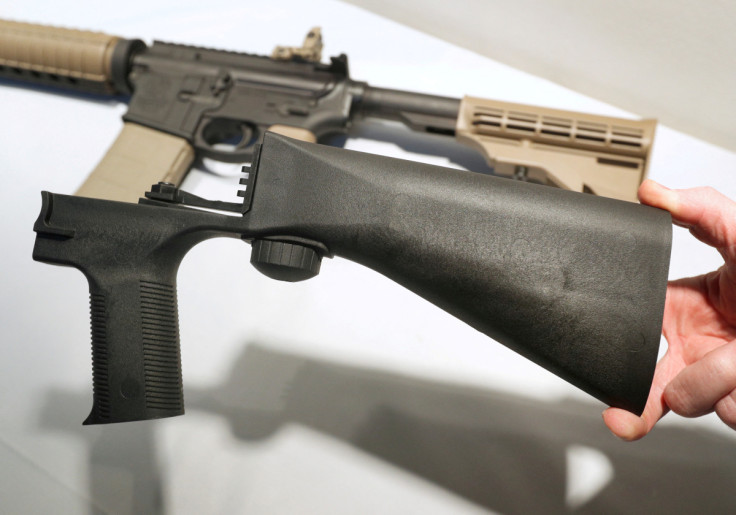Supreme Court Scrutinizes ATF's Authority In Bump Stock Ban Case

The Supreme Court on Wednesday deliberated on the Trump administration's ban on bump stocks, a response to the infamous 2017 Las Vegas shooting, the deadliest mass shooting in modern U.S. history. The Court, in the case known as Garland v. Cargill, is examining the legality of the ban, which classifies bump stocks as "machine guns."
The Las Vegas tragedy unfolded during the Route 91 Harvest Music Festival, leaving 58 dead and approximately 500 wounded. The gunman had utilized semi-automatic weapons equipped with bump stocks, enabling rapid firing of up to 1,000 rounds in just 11 minutes.
The Trump administration swiftly acted to ban bump stocks, categorizing them as "machine guns" under federal law. However, a legal challenge emerged in Texas in 2019, leading to the current Supreme Court review.
The central issue revolves around whether the Bureau of Alcohol, Tobacco, Firearms and Explosives (ATF) had the authority to outlaw bump stocks. The case, Garland v. Cargill, does not directly concern the Second Amendment but delves into a question of statutory interpretation, The Hill reported.
The Supreme Court is tasked with determining if a bump stock falls under the definition of a "machine gun" according to the National Firearms Act. This Act describes a machine gun as a weapon that "shoots automatically more than one shot, without manual reloading, by a single function of the trigger."
The ATF had previously held that bump stocks were not machine guns, a stance changed after the Las Vegas shooting. The subsequent rule issued by the Trump administration in December 2018 mandated the destruction or surrender of bump stocks by March 2019.
In the current case, Garland v. Cargill, Michael Cargill challenges the ban, arguing that bump stocks do not meet the statutory definition of a machine gun. The 5th Circuit initially upheld the ATF's classification but later, in January 2023, overturned the ban, asserting that Congress should be the entity to enact such prohibitions.
As the Supreme Court weighs the case, gun violence prevention advocates emphasize the ban's necessity, arguing that bump stocks convert semi-automatic rifles into fully automatic machine guns. The Biden administration supports this stance, urging the Court to uphold the ATF's interpretation, BBC reported.
A decision in the case is expected by the end of June, and carries significant implications for gun control and regulatory authority, irrespective of the Court's ruling.
© Copyright IBTimes 2024. All rights reserved.





















